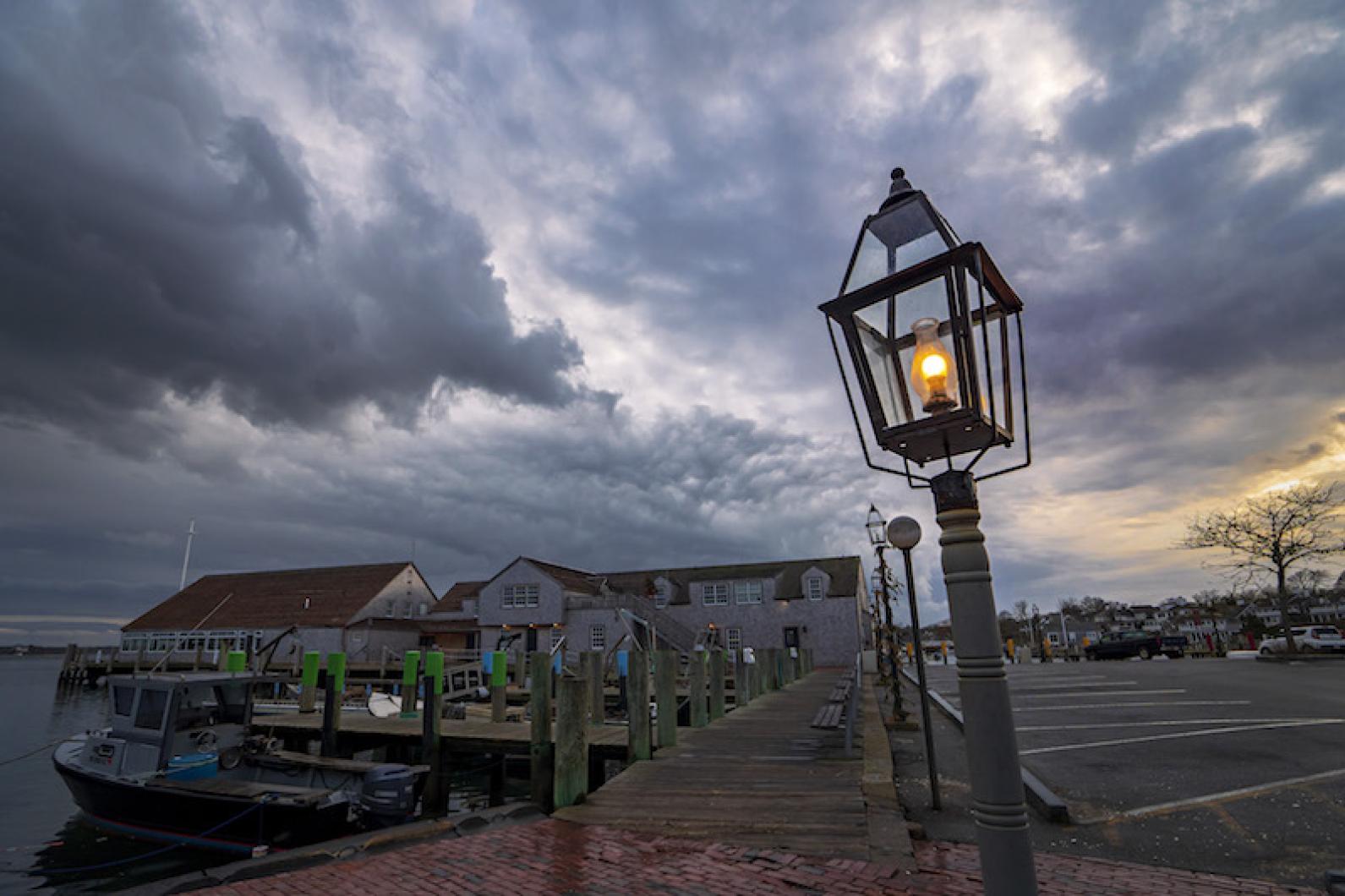The Martha’s Vineyard Commission aired its new energy policy and introduced its new climate change planner in front of the Edgartown selectmen on Monday.
The energy policy, pitched at a commission meeting in the fall, would apply to new commercial developments and residential subdivisions on the Island, focusing on heat pump installation, all-electric systems and on-site solar generation.
The policy has made the rounds at selectmen’s meetings across the Island over the past months, with Monday’s presentation in Edgartown completing the cycle before the commission is scheduled to vote on the policy in February.
Commissioner Ben Robinson presented the policy in conjunction with evidence showing the impacts of climate change on both the Island and world. This year was the hottest on record, Mr. Robinson said, and the planet has seen more billion-dollar disasters than ever before — a problem that continues to grow.
“Evolution won’t be able to keep up with the temperature changes we are producing, and that will have dire impacts on life on Earth,” Mr. Robinson said.
He explained that heat pumps are 59 per cent more efficient and produced fewer emissions than oil or propane, even if the electric energy comes from the grid. Mr. Robinson said the grid will get cleaner over time, particularly with the Vineyard Wind project, and that the price of renewable energy is declining.
Impetus for the new policy comes from the commission approving a nonbinding resolution in late 2019 to get to 50 per cent renewable energy by 2030, and 100 per cent renewable energy by 2040. Both Aquinnah and West Tisbury have also joined the resolution, which is set to come before other towns as warrant articles this spring.
Selectman Arthur Smadbeck asked whether state legislators were working on a proposal to allow towns to supply energy from their solar fields for non-municipal uses — a use that is currently restricted by utility companies like Eversource. Mr. Robinson said that the discussion has come up but that there is no legislation in place to make the change.
The commission’s policy would apply to commercial developments and residential subdivisions. Mr. Robinson noted that a variety of recent projects, such as the Oak Bluffs town hall and the Martha’s Vineyard Community Services building, would have fit the new policy.
“It’s a policy that’s achievable,” Mr. Robinson said.
Liz Durkee, the commission’s new climate change planner, also introduced herself in front of selectmen. Ms. Durkee said she would be working with the commission in five different areas to address climate change on an Islandwide basis, including climate education, energy, climate adaptation, human health and safety, and economic issues related to climate change.
“You got a big job, and we certainly will be looking to you for guidance and help,” Mr. Smadbeck said.







Comments (11)
Comments
Comment policy »